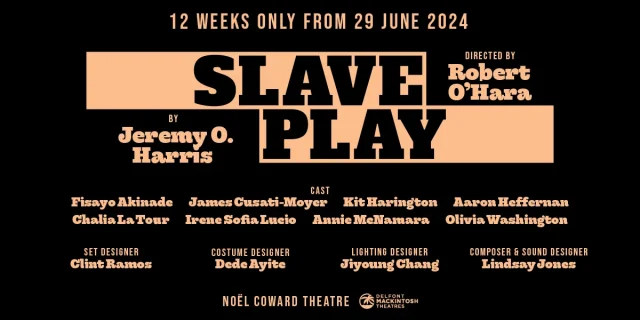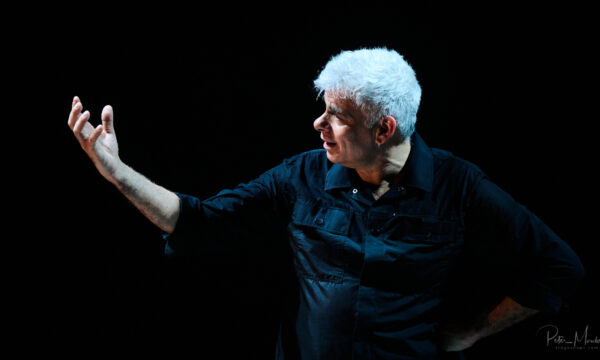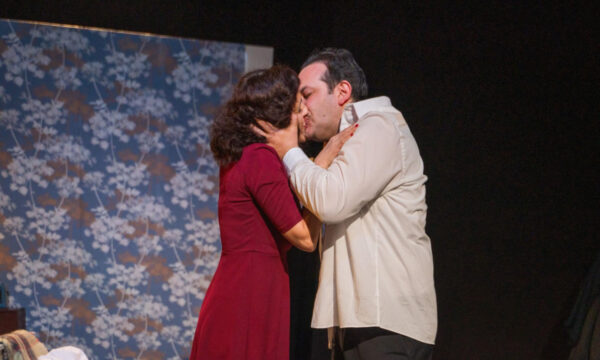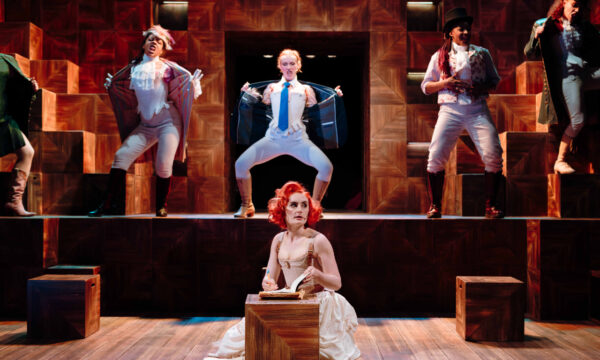Slave Play at Noël Coward Theatre

At the 2021 Tony Awards, Slave Play surpassed the record held by Angels in America for most nominations for a non-musical play. Writer Jeremy O Harris was at Yale when he penned his one-act examination of racial trauma in America. While the title alludes to America’s history of slavery, it also refers to sexual roleplay. Using sex therapy as a means of addressing racism, the play was deemed controversial and contentious from the off. This did not deter US critics who have largely celebrated the work. Nor did it detract the many audience members who have praised it for tackling such subject matter and casting focus on interracial relationships in a way that is seldom seen on stage.
Inevitably, many have also berated the drama for being an exploitative and traumatic experience. There was even a campaign to shut it down, with a well-known petition site accumulating more than 6000 signatures. Riding in on a wave of hype, and bolstered by the casting of Kit Harington of Game of Thrones fame, the show finally lands in London, where it will undoubtedly once again divide opinion.
We open on a female slave sweeping the stage. Work by Rihanna plays, and she begins to dance until the arrival of her white owner Jim stops her. He throws a melon on the floor and forces her to eat it before they engage in sex. We then see a man of colour being dominated by a white woman followed by a Black man bullying his white actor boyfriend. When Harington’s Jim suddenly bellows the safe word “Starbucks”, the energy shifts and we leave what we imagine having been a plantation in the antebellum south and find ourselves at a current-day retreat.
The three interracial couples are on the fourth day of treatment aimed at curing their struggling sex lives. The therapists argue that the deep-rooted legacy of slavery and all its lasting ramifications are responsible for hindering their sexual drive. What follows is a satire with some genuinely hilarious interactions entwined with a myriad of questions concerning identity and power. It is largely left up to us to form the answers.
In many ways, this is more a play of ideas than one with a rich plot to immerse ourselves in. The impressive, committed performances of the entire cast ensure their characters are not simply rendered stereotypes and are instead well-drawn and believable. Fisayo Akinade and Olivia Washington are particularly powerful, while Annie McNamara, James Cusati-Moyer and Aaron Heffernan are often very comical. Harington also entertains as the one participant to really challenge the merits of the treatment programme. As the jargon-spouting therapists, Chalia La Tour and Irene Sofia Lucio offer amusing turns.
Many will find certain aspects of Slave Play upsetting, so it’s pleasing that in addition to the usual trigger warnings, the programme provides detailed information on self-care, including grounding exercises and helplines. It reinstates the fact that this is theatre at its most provocative and powerful. Yes, it is teeming with laugh-out-loud moments and some truly great dialogue, but educating the audience in many ways overrides entertaining them.
Slave Play was the first production to stage blackout performances during its New York run. The practice – whereby an explicitly Black-identifying audience can experience the show – is gradually becoming more prevalent here. The London transfer will present two during its 12-week run, although it should be said that no one will be prevented from attending these shows.
With such a great deal to unpack from two uninterrupted hours, it’s hard to sum up what one takes from the play. In fact, everyone is likely to extract something different from what can only be described as a perplexing and confronting theatrical experience. While this is very much an “American” play, its challenging themes are universal. Mirrors line the back of the stage, forcing us to stare at ourselves. We simply sit and watch as we have done for decades, ignoring the dark underbelly of history and turning a blind eye to the lingering imprint of slavery and to the racism that still goes on throughout the world daily. Does it live up to the hype? It’s hard to say. Does it force you out of your comfort zone? Absolutely – and in a way that only the medium of theatre can and indeed should.
Jonathan Marshall
Images: Helen Murray
Slave Play is at Noël Coward Theatre from 29th June until 21st September 2024. For further information or to book visit the theatre’s website here.





















Facebook
Twitter
Instagram
YouTube
RSS